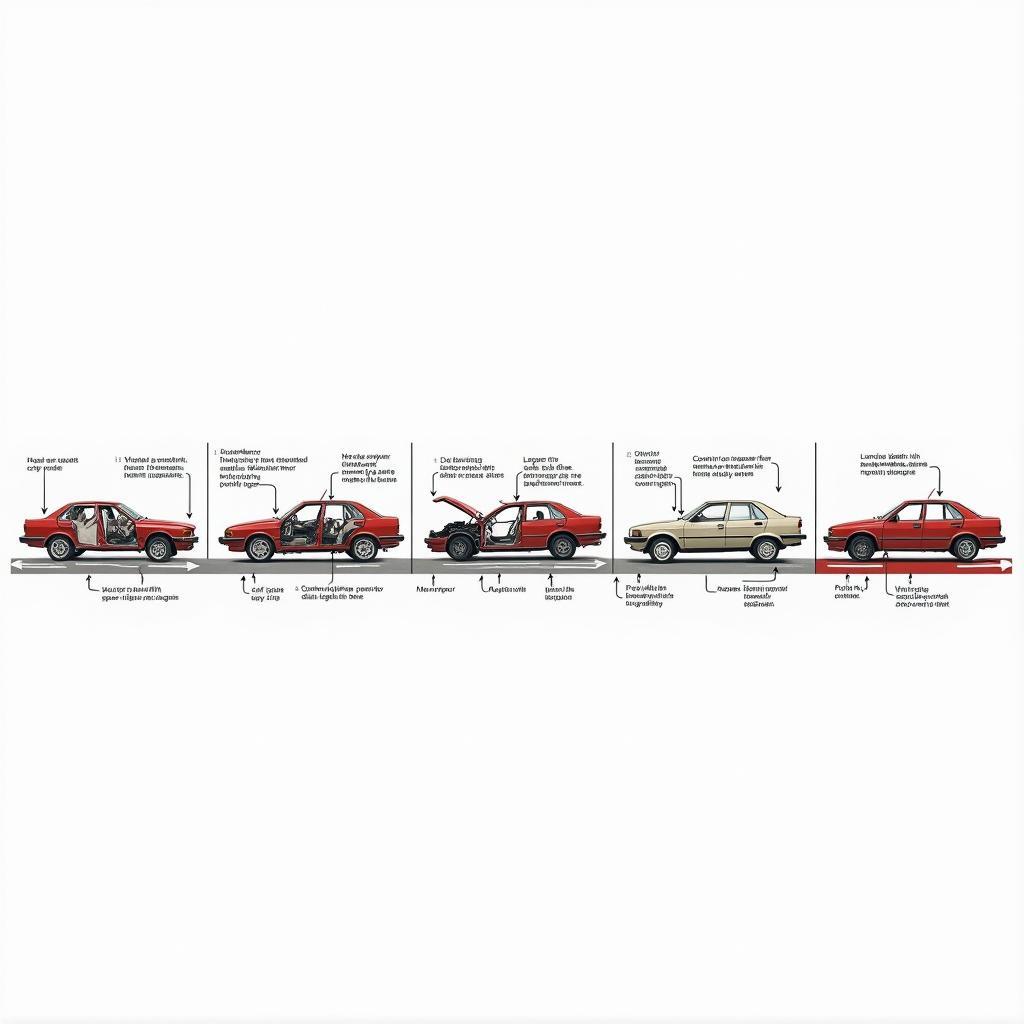Car bodywork repair is an essential aspect of vehicle maintenance, restoring your car’s appearance and ensuring its structural integrity after an accident, collision, or wear and tear. From minor dents and scratches to major collision damage, understanding the intricacies of car bodywork repair can help you make informed decisions and maintain your vehicle’s value and safety.
What Does Car Bodywork Repair Involve?
Car bodywork repair encompasses a wide range of services aimed at restoring a vehicle’s exterior to its pre-damage condition. This includes:
- Dent Repair: Addressing minor dents and dings caused by hail, door dings, or minor impacts. Techniques like paintless dent repair (PDR) can often restore the panel without affecting the original paint.
- Scratch Repair: Fixing scratches, ranging from light clear coat imperfections to deep paint gouges, often involving sanding, filling, priming, and repainting the affected area.
- Bumper Repair: Repairing or replacing damaged bumpers, which are often the first point of impact in low-speed collisions.
- Panel Replacement: Replacing severely damaged body panels like doors, fenders, hoods, or trunk lids with new parts to ensure structural integrity and a seamless appearance.
- Frame Repair: Addressing damage to the vehicle’s underlying frame or unibody structure, which is crucial for safety and handling. This typically requires specialized equipment and expertise.
- Paintwork: Repainting repaired panels to match the original factory finish, including color matching, blending, and clear coat application.
Choosing the Right Car Body Repair Shop
Selecting a reputable and skilled car body repair shop is paramount for a successful repair experience. Consider the following factors:
- Reputation and Reviews: Look for shops with positive online reviews and testimonials from previous customers.
- Certifications and Experience: Choose a shop with certified technicians experienced in repairing your vehicle’s make and model.
- Equipment and Facilities: Ensure the shop has the necessary equipment and facilities to handle the complexity of your repair.
- Insurance Claims Process: Inquire about the shop’s experience in working with insurance companies and their ability to assist with claims processing.
- Warranties: Check if the shop offers warranties on their repairs, providing peace of mind and protection against future issues.
DIY vs. Professional Car Bodywork Repair
While minor scratches or dents might tempt car owners to attempt DIY repairs, it’s crucial to understand the complexities involved. DIY solutions often provide temporary fixes and can potentially cause further damage or compromise the vehicle’s value.
Professional car bodywork repair offers several advantages:
- Expertise and Precision: Trained technicians possess the knowledge and skills to perform repairs accurately and efficiently.
- Specialized Equipment: Body shops have access to specialized tools and equipment not readily available to the average car owner.
- Quality Materials: Reputable shops utilize high-quality paints, primers, and other materials for a durable and long-lasting finish.
- Safety Assurance: Proper repairs ensure the structural integrity of your vehicle, safeguarding you and your passengers.
Estimating Car Bodywork Repair Costs
The cost of car bodywork repair can vary significantly depending on the extent of the damage, the vehicle’s make and model, and the chosen repair shop. Factors influencing the cost include:
- Severity of Damage: Minor dents and scratches will cost less to repair than major collision damage requiring panel replacement or frame straightening.
- Parts Availability: The availability and cost of replacement parts can impact the overall repair expenses.
- Labor Rates: Labor costs can vary depending on the shop’s location and the complexity of the repair.
- Paint Type and Finish: Specialty paints or complex paint matching can increase the cost.
It’s always recommended to obtain multiple quotes from reputable car body repair shops to compare prices and services offered.
Maintaining Your Car’s Bodywork
Preventing damage is always preferable to costly repairs. Here are some tips to maintain your car’s bodywork:
- Regular Washing and Waxing: Protect your car’s paint from environmental contaminants and UV damage.
- Careful Parking: Choose parking spots away from other vehicles to minimize the risk of door dings.
- Prompt Dent and Scratch Repair: Address minor damage promptly to prevent rust and further deterioration.
- Professional Detailing: Periodic professional detailing can help maintain the appearance and value of your vehicle.
Conclusion
Car bodywork repair plays a crucial role in restoring your vehicle’s appearance, safety, and value. Whether it’s a minor dent or major collision damage, seeking professional repair services ensures a high-quality, long-lasting outcome. By understanding the intricacies of car bodywork repair, choosing the right repair shop, and taking preventive measures, you can keep your car looking its best for years to come.



